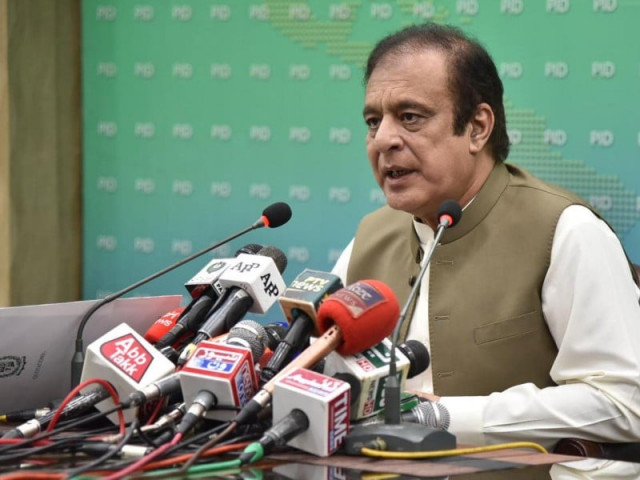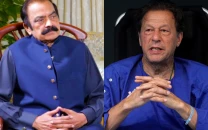Shibli fully exposes opposition's tactics of seeking NRO
Says amendments sought by opposition in NAB law were meant to escape accountability process, save ‘ill-gotten’ money

Minister for Information and Broadcasting Senator Shibli Faraz on Monday fully exposed the opposition’s tactics of getting an NRO by demanding massive changes in the anti-graft law to make the National Accountability Bureau (NAB) a “toothless” and “featherless” body.
During the parliamentary committee meeting that discussed the Financial Action Task Force (FATF)-related bill the minister said the opposition had sought amendment to 34 out of 38 clauses of the NAB law, which would have made the anti-graft watchdog totally irrelevant.
“It completely belied the impression being given by the opposition of not seeking any NRO-like concession from the government,” he said while talking to the media.
The minister, who was also part of the parliamentary committee meeting, said all the amendments the opposition had sought in the NAB law, were meant to escape the accountability process, and save their “ill-gotten” money and assets.
Unlike the opposition's claims, he said, Prime Minister Imran Khan had the authority to give them any concession; however, he would never give them an NRO.
It was evident from the fact that the government would have conceded to their demands while dealing with the FATF-related law, which it did not, he added.
Shibli claimed that the opposition parties had already planned to seek the NRO. People must know as to how they had used the FATF-related legislation as a “negotiation card” for their personal interests instead of national ones, he said.
The information minister recalled that as the meeting of the parliamentary committee was under way to discuss the FATF law, the opposition members left the room.
They later joined the meeting with a draft seeking amendments in the NAB law, he said.
Shibli observed that the first amendment, proposed by the opposition, sought the implementation of NAB law from 1999, saying it would not only have benefitted those who had committed corruption before 1999, but also helped them legalise their assets and looted money.
“Its ultimate beneficiaries would have been those who were involved in the Chaudhry Sugar Mills case.”
He said the second amendment suggested restricting NAB from investigating cases involving less than rupees one billion corruption.
Its beneficiaries would have been Pakistan Muslim League-Nawaz leaders Khawaja Asif, Javed Latif and Rana Sanaullah, and the accused of Ramzan Sugar Mills case, he maintained.
The third amendment, Shibli said, pertained to the removal of money laundering from the crimes list, which would have benefited PML-N President Shehbaz Sharif, who was an accused in the telegraphic transfer scam, Pakistan Peoples Party leader Asif Ali Zardari and his sister Faryal Talpur in fake bank accounts and other cases, and Khawaja Asif in the assets case.
Through the fourth amendment, exclusion of spouses and children from the definition of Benamidar was proposed, and its beneficiaries would have been Asif Zardari, Anwar Majeed, Iqbal Memon, Maryam Nawaz and Maulana Fazl ur Rehman, he said.
The minister maintained that the fifth amendment sought to remove the powers of NAB to take up cases related to willful default and loans write-off. It was supposed to benefit Zardari and company, and the “sugar mafia” working under Suleman Shehbaz.
He stated that the opposition’s sixth amendment was aimed at restricting NAB to only investigate the corruption cases, which were reported in the last five years and added that it was akin to give an “NRO plus plus” to the PPP and an “NRO plus” to the PML-N leaders.
According to Shibli, through another amendment, the opposition had proposed that the disqualification of a politician should be linked with the apex court's order with its duration reduced from 10 to five years.
He pointed out that the amendment suggested in clause 10 of the NAB law was meant to prevent international cooperation against money laundering.
It was in fact aimed at throwing the AMLA (Anti-Money Laundering Act) into a dustbin as it would help the opposition leaders to protect their ill-gotten money laundered abroad through illegal channels, he added.
Shibli stated the opposition had also suggested abolishing the whistle blower law, which was enacted to curb corruption in the country.



















COMMENTS
Comments are moderated and generally will be posted if they are on-topic and not abusive.
For more information, please see our Comments FAQ